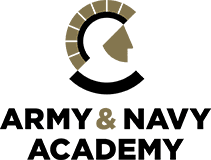 It should go without saying that the academic, personal, and social skills needed to succeed in college are beyond those required to succeed in today’s typical high school. What becomes clear immediately to incoming college or university freshmen – and their parents – is that there’s far more to succeeding in college than having earned high grade point averages while in high school , scoring high on ACT or SAT exams or being active in high school activities. What may have succeeded in most hometown high schools where students have at-home support and daily guidance from parents and other adults may not be enough to succeed when the student leaves home and is literally on his or her own.
It should go without saying that the academic, personal, and social skills needed to succeed in college are beyond those required to succeed in today’s typical high school. What becomes clear immediately to incoming college or university freshmen – and their parents – is that there’s far more to succeeding in college than having earned high grade point averages while in high school , scoring high on ACT or SAT exams or being active in high school activities. What may have succeeded in most hometown high schools where students have at-home support and daily guidance from parents and other adults may not be enough to succeed when the student leaves home and is literally on his or her own.
Having what it takes to earn admission and be college-bound is the first step to a college career; but, once admitted, there are ample numbers of successful high school seniors who find themselves either struggling to survive academically at college or worse yet, who have to drop out because of poor grades or personal stress.
What one school does to prepare students to succeed in a college or university
The Army and Navy Academy, a truly college preparatory boarding and day school for middle- and high-school students in Carlsbad, Calif., offers the University of California A-G courses that are required for university admission and which are offered by most California high schools. However, the Academy begins preparing its Cadets for college outside the traditional classroom setting well before their senior year when test scores are in and applications sent.
For one thing, most of the Academy’s middle- and high-school Cadets live on campus and therefore become acclimated early on to living “on their own,” away from home. This enables them to learn and practice the personal development skills necessary to succeed far earlier than their at-home peers who don’t do so until they leave for college. More about that later.
Beginning at the Academy’s middle school level, 8th-grade Cadets take the ACT Aspire tests to assess their progress towards college readiness in mathematics, reading, English, writing, and science.
Middle school cadets also are given lessons on goal setting and college/career planning as well as opportunities to attend college fairs. Academy counselors also discuss with middle school Cadets the options they have to take Advanced Placement and other courses when they become high school cadets.
In addition to taking academic classes, Cadets participate in several levels of the Academy’s Leadership Education Training (LET) program where they learn leadership, organization, self-discipline, and teamwork skills as well as developing good character. Academy counselors work through the LET classes, preparing seniors for the college application process and helping sophomores and juniors research and prioritize the colleges they want to attend.
The Academy’s annual College Spring Break takes high school Cadets to different areas of the country each year to visit several college and university campuses. Each spring, the Academy hosts a meeting for junior-year Cadets and their parents, regarding the upcoming college application process. This helps to ensure that Cadets and their families are well informed in advance of the application process.
At the beginning of the seniors’ school year, the Academy conducts a college “boot camp” where school counselors separate senior Cadets into small groups with assistance of the school’s English Department. Here, Cadets can ask questions, receive support and guidance in the application process, learn how to search for scholarships, as well as receive help with their college admission essays. Since each counselor has a relatively small caseload, ranging between 60 and 80 cadets, they’re able to get to know each Cadet individually and to give them the level of one-on-one attention not available in larger school settings where the counselor-to-student ratios are much higher. Several of the Academy counselors already have or are working on college counseling certification.
The Academy makes effective use of their alumni, bringing many graduates back to the campus to discuss their different paths to colleges and universities. Faculty members, staff members, and administrators also share their unique experiences in applying for and attending their college alma maters.
The Academy’s Dean of Academics Ethan Segovia writes at least 20 letters of recommendations for graduating Cadets each year. Letters from a school’s chief academic officer tend to carry more weight than letters from classroom teachers at larger schools.
Habits of successful college students
By the time they complete their senior year and graduate, Army and Navy Academy cadets are well-trained on how to succeed when they begin college. For other high school students – and their parents — there are myriad seminars, coaching sessions, and printed lists detailing what habits successful college students have developed. Here’s one paraphrased list for students to adapt from Opportunity International’s “10 Habits of Successful Students”:
- Get organized. Make a formal plan for what you’re going to and when you’re going to do it to be sure you’re always “ahead of the curve” literally.
- Don’t multitask. Studies show that multitasking is physically exhausting.
- Divide it up. To begin with, studying is not fun. Forcing yourself through a study marathon will only make matters worse. Dividing your work into manageable “chunks” and rewarding yourself when you finish each “chunk” will make studying almost fun.
- Get plenty of sleep. Getting a good night’s rest every night will sharpen your focus and improve your working memory.
- Set a schedule. Do you work better right after school or after you’ve eaten dinner? Are you more productive in 90-minute blocks or 30-minute “spurts?” Find a schedule that works for you – and stick to it.
- Take notes. Taking notes not only will keep you more engaged during class but it will also help you narrow down what you need to study for quizzes and exams. In preparing for final exams, it’s much easier to reread a set of notes than to reread an entire textbook.
- Study right. There’s a right and a wrong way to study. The right way is to review the subject material several days ahead of the exam, in small “chunks,” and in different manners. For example, write flashcards one day and take practice tests the next day. In other words, don’t “cram.”
- Manage your study space. Find a place that will optimize your productivity – away from TV sets and other distractions. Select a study space that you want to spend time in.
- Find a study group. Sitting down with a group of students who are learning the same thing as you are is a great way to go over and resolve confusing class materials or to prepare for a major exam. You can quiz each other, teach each other the material and ensure that everyone in the group is on the same page. To paraphrase an old adage: The best way to learn something is to first teach it to others.
- Ask questions. You’re in school to learn, so don’t be afraid to do so. Asking for help from a teacher, a tutor or a friend is a good way to make sure you truly understand the material.
There are other tips and pointers in abundance from other higher education sources, including, in part: “Discipline yourself,” “Learn time management,” “Be responsible,” and “Participate in volunteer and community service programs.” These and many more pointers are taught as part of the college preparatory academic, leadership, and character development education Cadets receive at the Army and Navy Academy.
For further information on the Army and Navy Academy, visit the website at https://www.armyandnavyacademy.org; e-mail at admission@armyandnavyacademy.org or phone at 888.762.2338.
